Pilonidal Sinus – Causes, Symptoms & Remedies
By Dr. Raj Kumar Singh +2 more

Get,

to manage your symptom
Get your,


4 Cr+ families
benefitted

OTP sent to 9988776655



You’ve successfully subscribed to receive
doctor-approved tips on
Whatsapp

Get ready to feel your best.

Hi There,
Download the PharmEasy App now!!


Register to Avail the Offer
Send OTPBy continuing, you agree with our Privacy Policy and Terms and Conditions

Hi There,
Sign up on PharmEasy now!!
Trusted by 4 crore+ families

OTP sent to 9988776655



You have unlocked 25% off on medicines




Code: NU25
By Dr. Raj Kumar Singh +2 more
Table of Contents
Pilonidal Sinus is a skin abnormality that can occur near the tailbone, at the top of the buttocks. It usually forms a tunnel or a sac-like depression in the region. Pilonidal sinus is also known as a pilonidal cyst or pilonidal disease and is usually not a concern unless it gets infected1. Infected pilonidal cysts are called abscesses and can cause pain and discomfort, apart from other symptoms. The precise cause of pilonidal sinus is unknown, but it is thought to be associated with hair growing into the skin, as well as skin-to-skin friction.
People who sit for long periods for work (such as drivers, office workers, etc) may experience pilonidal sinus more often than others. Additionally, men are more likely to experience this condition than women, possibly due to males being hairier than women in general. If you suspect that you may have pilonidal sinus, you must speak with your doctor and get it checked. Only a doctor will be able to diagnose and treat this condition.

The exact cause of pilonidal sinus is unknown, but the presence of hair within the shallow depression near the tailbone area can indicate a possible link. It is thought that excessive sitting along with ingrown hair (when the hair grows back into the skin) may be causing the development of pilonidal sinus.
Excessive sweating may also cause pilonidal sinus since this can encourage the growth of certain bacteria. Bacteria can cause an infection within the hole, this may lead to various symptoms and require medical intervention. Here are some risk factors for pilonidal sinus:
There are two main types of pilonidal sinus – Infected pilonidal sinus and non-infected pilonidal sinus. Additionally, the severity of the condition may differ based on the size of the cyst or sinus as well as the symptoms associated with it.
Pilonidal sinus typically only causes symptoms when it becomes infected. Although not all of these tunnels will become infected, once you develop an infection in this hole or cyst, the following symptoms may appear-
Usually, pilonidal sinus will be detected by a doctor when he/she visibly examines the area and know about complaints of pain and tenderness in the region.
Pilonidal sinus can usually only be permanently fixed through surgery, but there are plenty of self-care methods you can do to ease your symptoms. Here are some basic activities and solutions for lowering your risk of pilonidal sinus as well as decreasing your discomfort if you already have it:
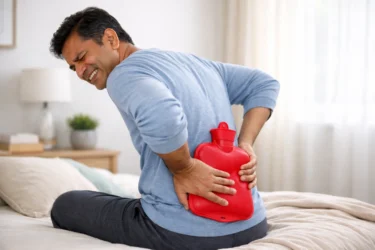
Using a hot wet compress can heat the region and provide some mild temporary relief. A hot compress may also allow the pus to drain from the sinus which could ease the pain and itchiness associated with this condition. Use a hot water bag or heated wet cloth to gently place it on the region for several minutes. Repeat the process as needed.
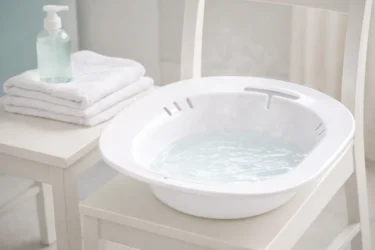
Although a Sitz bath is usually recommended for fistulas, it may also give some relief to those with pilonidal sinus3. In a shallow tub, add warm water and soak the region for several minutes. Repeat this procedure multiple times a day if it brings relief from the pain.
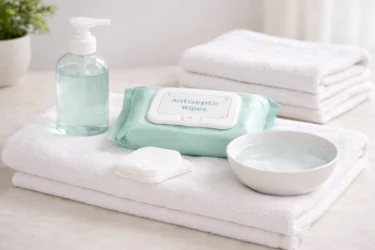
Ensure that the region between your buttocks is always clean and dry. Be gentle when cleaning the area and always pat yourself down with a dry towel. Moisture may increase the risk of bacterial growth so it is essential to maintain proper hygiene3.
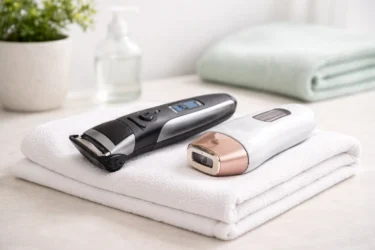
Since ingrown hair is thought to play a major role in the development of infection in the pilonidal sinus, you can lower your risk by removing hair from the area3. Laser hair removal as well as traditional methods like shaving and hair removal creams may decrease your risk. Be sure to clean the area thoroughly after shaving since loose hair can also poke the skin and cause a cyst to form.
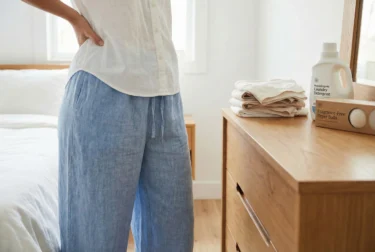
Avoid tight-fitting clothes as these may allow moisture and sweat to collect between your buttocks. If you have a history of pilonidal sinus or you are at a higher risk of developing one, you should consider cotton-only clothing options.
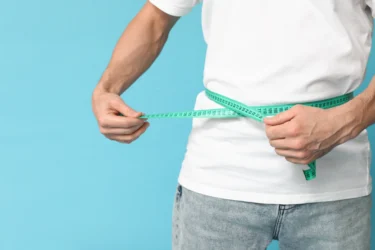
The increased weight comes with a higher risk of developing a pilonidal cyst, you can avoid this by lowering your weight3. If you already have a healthy BMI (Body Mass Index) then this may not be an option for you. However, if you are overweight or obese, speak with your doctor about a healthy weight loss plan.
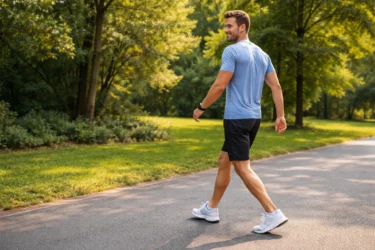
Simple, light exercises like regular walks may allow you to deal with the issue of sitting for hours at your job. Sitting for long periods is linked with a higher risk of pilonidal sinus. Any quick, short and easy physical activity you can get during the day for a few minutes may lower your risk of this condition.
The pilonidal sinus will usually require medical attention when it gets infected and causes symptoms. The infection will usually not go away on its own, hence various minor surgical procedures4 may be required. Here are a few signs that you need to contact your doctor at the earliest:
Your doctor will make a decision based on your medical condition and recommend some of the following options:
Pilonidal sinus can be a painful condition to live with. Fortunately, there are a variety of self-care options to manage the symptoms at home as well as effective surgical options to choose from. Your doctor will observe and diagnose your condition before suggesting the best surgical procedure for your case. Surgical intervention is usually the only method to permanently get rid of the pilonidal sinus. Speak with your doctor to find out what your options are.
Pilonidal sinus is not a serious medical issue until it gets infected. Infected pilonidal sinuses will require some kind of medical intervention.
In some cases the swelling and pus leakage may temporarily decrease, however, it usually returns. For most infected pilonidal sinus cases the issue will not get fixed by itself.
You will notice pain, tenderness, swelling and redness in the area between your buttocks at the top. Pus may leak out of the cyst and you may notice more pain when you sit down. Hair may also be noticed from the pilonidal sinus.
No, pilonidal sinus surgery typically involves less pain than other procedures such as surgeries for fistulas and fissures. During the operation, local anesthesia will ensure that you feel no pain while pain after the procedure will be minimal.
Disclaimer: The information provided here is for educational/awareness purposes only and is not intended to be a substitute for medical treatment by a healthcare professional and should not be relied upon to diagnose or treat any medical condition. The reader should consult a registered medical practitioner to determine the appropriateness of the information and before consuming any medication. PharmEasy does not provide any guarantee or warranty (express or implied) regarding the accuracy, adequacy, completeness, legality, reliability or usefulness of the information; and disclaims any liability arising thereof.
Links and product recommendations in the information provided here are advertisements of third-party products available on the website. PharmEasy does not make any representation on the accuracy or suitability of such products/services. Advertisements do not influence the editorial decisions or content. The information in this blog is subject to change without notice. The authors and administrators reserve the right to modify, add, or remove content without notification. It is your responsibility to review this disclaimer regularly for any changes.
Comments

Leave your comment...
You may also like
Comments